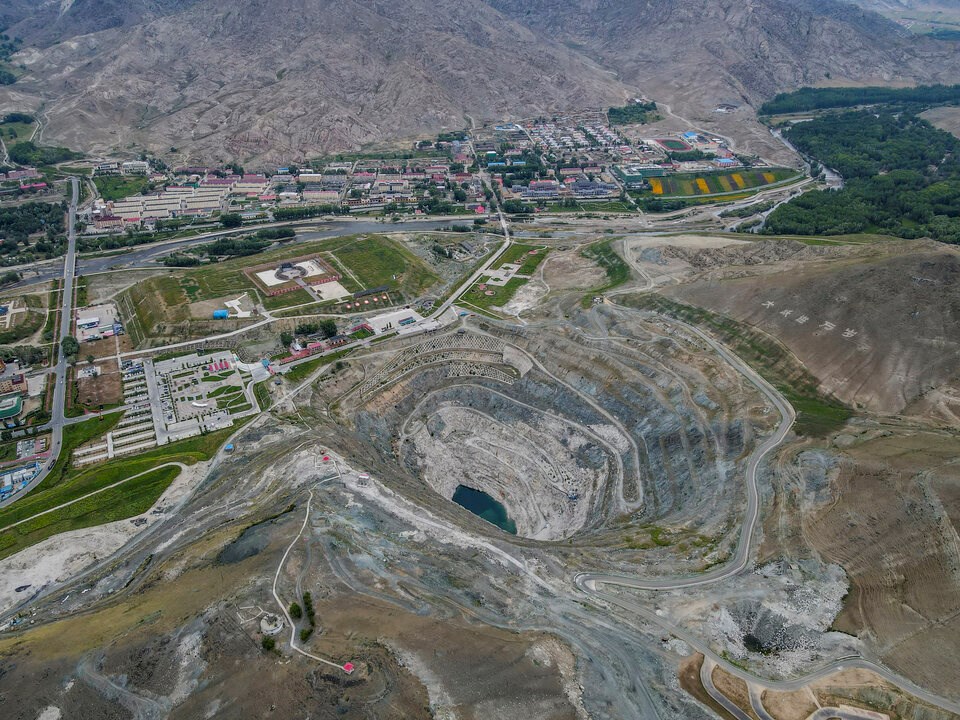An investigation from Canada's human rights ombudsman has found a Vancouver-based mining company contributed to the use of forced labour in China’s Xinjiang Uyghur Autonomous Region.
Released last week, the report from Canada's Ombudsman for Responsible Enterprise (CORE) targeted Dynasty Gold Corporation, and came after a 2022 complaint from 28 Canadian organizations.
"Dynasty has contributed to the use of forced labour at the Hatu mine through its relationship with its joint venture partners,” wrote ombudsperson Sheri Meyerhoffer in her report.
Those partners included Xinjiang Non-Ferrous Metal and Western Region Gold. But the ombudsperson also cited Dynasty for holding a majority share (as recently as April 2022) in Terraxin Mineral Exploration Co. Ltd. — a Sino-foreign joint venture that moved to identify and develop gold mines in Xinjiang.
By doing “nothing to identify, assess, and address or mitigate the risk of Uyghur forced labour at the mine,” Meyerhoffer concluded that Dynasty did contribute to the “adverse impacts” on human rights.
“Dynasty’s own communications emphasize that its operations relied on the use of Uyghur workers,” the investigation notes.
Dynasty says report 'full of errors and inaccuracies'
A spokesperson from Dynasty Gold said the report was “full of errors and inaccuracies,” that Dynasty conducted exploration operations at Hatu mine between 2004 and 2008 when there was “no report of forced labour,” and wrote off its investments in Xinjiang in 2010.
“There hasn't been any relationship between Dynasty and the State-owned Xinjiang companies since 2008,” wrote Dynasty spokesperson Ivy Chong in an email. “All that was left for Dynasty to do was to fight for compensation in the Chinese court for its investments.”
Chong said claims “Dynasty's subsidiary Terrawest still owns 99.9999% of Terraxin” is based on a “fake ownership/relationship claim” the company described as “totally absurd.”
“Have no idea how they came up with it. Dynasty has no operation in China since 2008,” Chong added. “We hope other Ministries will review this report and find some senses [sic.].”
UN says China's treatment of Uyghurs may count as 'crimes against humanity'
A 2022 report from the United Nations found China’s treatment of the Uyghur minority population of more than 11 million people may constitute crimes against humanity.
The UN report came shortly after UN High Commissioner of Human Rights, Michelle Bachelet, said that “allegations of patterns of torture, or ill-treatment, including forced medical treatment and adverse conditions of detention, are credible, as are allegations of individual incidents of sexual and gender-based violence.”
In a rebuttal, the Chinese government denied the claims, stating “the accusation that its policy [in Xinjiang] is ‘based on discrimination’ is groundless.”
According to the report, Dynasty said it paid workers twice the normal wages while it operated the mine in western China.
But the ombudsperson said she found no evidence Dynasty had done due diligence to ensure it wasn't involved in human rights abuses, nor "to support Dynasty’s assertions that equitable compensation was provided and that cultural protocols were followed" at its facilities.
“Dynasty has demonstrated a lack of participation in the complaint process to date,” the report said.
Ombudsperson recommends Canada penalize company
Meyerhoffer recommended Export Development Canada refuse to provide future financial support to Dynasty, while calling on the Department of Foreign Affairs, Trade and Development to withdraw all current and future trade advocacy for the company until it could fulfil a number of recommendations.
One of those recommendations is to provide a “significant financial donation” to non-profits working to combat Uyghur forced labour.
Another is to assess how Dynasty could use its leverage to prevent forced labour at the Hatu mine, and if it can’t, to consider exiting its business relationships there.
The ombudsperson also recommends the company develop and adopt a policy that commits to respecting human rights, and when to responsibly exit from high-risk areas.




